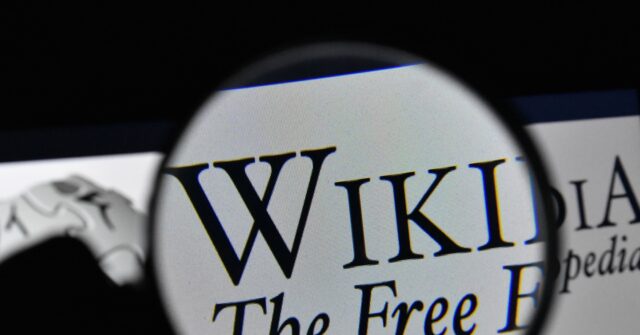The world’s most popular online encyclopedia, Wikipedia, could be potentially banned from the United Kingdom as a result of impending censorship legislation, the charity that hosts the website has warned.
The British government’s latest foray into censoring the internet could see UK readers and contributors to Wikipedia see their access blocked, with the hosting Wikimedia Foundation charity saying that it will not comply with some of the diktats in the so-called Online Safety Bill.
The chief executive of Wikimedia UK, Lucy Crompton-Reid said that a key stumbling block would be the demands from the government to impose age verification checks, which the charity said that it would not do as it would impede upon user privacy.
Crompton-Reid said that it is “definitely possible that one of the most visited websites in the world”, which she called a ” vital source of freely accessible knowledge and information for millions of people” – won’t be accessible to UK readers (let alone UK-based contributors)”.
The Wikimedia UK exec said that it is conceivable that some of the articles, such as entries concerning sexuality, which contain educational images, could be construed as pornography and therefore the British government could force the online encyclopedia to impose age verification checks on its users in the UK.
“The increased bureaucracy imposed by this bill will have the effect that only the really big players with significant compliance budgets will be able to operate in the UK market. This could have dire consequences on the information ecosystem here and is, in my view, quite the opposite of what the legislation originally set out to achieve.”
UK Government Looks to Ban Misogyny on Social Media in ‘Online Safety’ Law https://t.co/jSecfQcWsQ
— Breitbart London (@BreitbartLondon) February 5, 2023
Under the proposed Online Safety Bill, social media companies and other websites will be placed under the purview of Britain’s national broadcasting regulator, Ofcom (The Office of Communications) which would be granted censorship powers on the internet, with the ability to fine firms up to ten per cent of their global revenue or even a potential outright ban should they fall afoul of vaguely defined “harm” standards.
The bill would require that online firms follow the already restrictive speech laws in the country, such as hate speech laws and communications offences, including broad terms such as “grossly offensive“.
It would also require that large sites take preventative measures to prevent children from accessing explicit material, such as imposing age checks. It is not currently clear whether educational content, such as that found on Wikipedia, would be classified as pornographic.
A spokesperson for the Department for Culture, Media and Sport said: “The world-leading online safety bill has been designed to strike the balance between tackling harm without imposing unnecessary burdens on low-risk tech companies.
“Ofcom will take a reasonable and proportionate approach when monitoring and enforcing the safety duties outlined in bill, focusing on services where the risk of harm is highest.”
UK Rated Only ‘Partially Open’ in Free Speech Index amid Government’s Online Censorship Plans https://t.co/OvJxUhZpKz
— Breitbart London (@BreitbartLondon) January 25, 2023
Follow Kurt Zindulka on Twitter here @KurtZindulka


